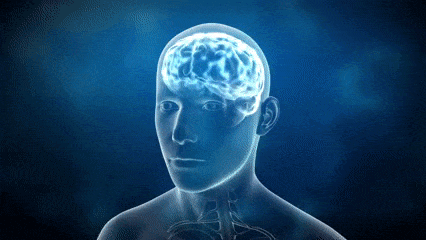Here’s The Interesting Way Your Brain Recycles Old Memories
A study involving snails provides some interesting insight into humans. Giphy
Giphy
News that is entertaining to read
Subscribe for free to get more stories like this directly to your inboxFrom learning skills to forming relationships to remembering how to get to the supermarket, our brains are packed with information that we access at countless points throughout the day.
But scientists have come to believe that these memories aren’t just static points of data in our minds. They also seem to serve as the building blocks for creating new memories.
And this is how it works
According to the results of recent research into the matter, the mind operates on a concept not unlike connecting the dots to create a full picture. Although the study referenced in the new issue of Science Advances involved snails, there’s some evidence that human brains follow a similar, albeit far more complex, pattern.
Scientists say they were successful in changing how a snail perceived prior events, which gave them a different perspective on related experiences in the future.
The experiments were pretty straightforward and involved “strong training” and “weak training” in order to determine how the snails associated stimuli with a sugar-laced treat. The more closely the two were connected in the snails’ brains, the more eager they were to ingest both.
What it means for humans
In the end, the “strong training” experiments provided a firmer basis for snails to establish lasting memories and learn new skills. For the animals, this can be a huge benefit when it comes to finding sources of food.
For humans, the potential impact of forming such memories can have far more wide-ranging applications.
As University of Oxford postdoctoral fellow Pedro Jacob explained, the study details “the behavior to the electrophysiological underpinnings of this interaction between past and new memories,” noting that it is “interesting because it’s probably conserved across species.”
But more research is needed before we can tell how much our brains mimic those of snails.
 Why Is The Aging Voyager 1 Probe Sending Back Incoherent Communications?
It's been speaking gibberish for a few months and officials are concerned.
Why Is The Aging Voyager 1 Probe Sending Back Incoherent Communications?
It's been speaking gibberish for a few months and officials are concerned. One Woman’s Massive Donation Is Wiping Out Tuition At This Medical School
Her inheritance came with the instruction to do "whatever you think is right."
One Woman’s Massive Donation Is Wiping Out Tuition At This Medical School
Her inheritance came with the instruction to do "whatever you think is right." Woman’s Pets Will Inherit Her Multimillion-Dollar Fortune, Not Her Kids
It's not the first time four-legged heirs were named in a will.
Woman’s Pets Will Inherit Her Multimillion-Dollar Fortune, Not Her Kids
It's not the first time four-legged heirs were named in a will.